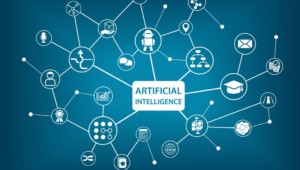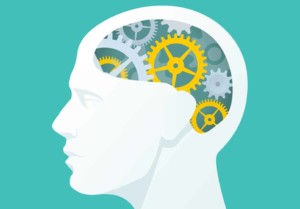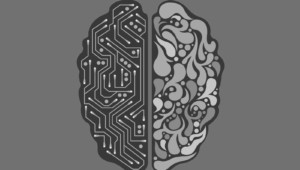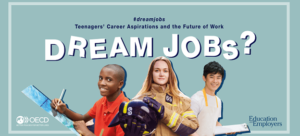The Growing Need for Skills in Artificial Intelligence

We are seeing Artificial Intelligence (AI) used in all areas of life and work. Because of the continued growth in and demand for skills in AI, we need to provide opportunities for all students to learn about and understand how AI works. Dave Touretzky, the founder of AI4K12 had stated: “It’s important that children be given accurate information about AI so they can understand the technology that is reshaping our lives.” Artificial intelligence is increasing in all areas of our world and a recent Forbes article shared five industries that are seeing increased benefits from artificial intelligence.
Automotive industry. There is a prediction that there will be 33 million self-driving cars on the road by 2040. To learn more about self-driving cars, I recommend checking out the virtual driverless course from AI World School, which I had been using with my STEAM class.
Ecommerce. Algorithms track our use of certain websites such as Amazon, which then leads to more personalized experiences. Although it can be a bit unsettling at times to see ads pop up on other sites. Have you looked at a shopping site or searched something on Google, to then find similar products popping up on the other websites that you interact with? Algorithms make this possible.
Finance. AI processes large amounts of data and can instantly complete tasks and transactions that in the past took hours or days and multiple people to complete. There are “Robo advisors” which are capable of building personalized portfolios and profiles for investors and can do so without any human interaction.
Healthcare. For example, diagnosing pathology by analyzing tissue samples using machine learning and algorithms which can help doctors identify problems more quickly and provide care for patients.
Transportation and travel. More than 80% of people regularly use their phones to search local restaurants and landmarks. Algorithms scan the roads and adapt and provide information in real-time. Think about how often you rely on Google to search for a location or information about local landmarks.
These are just five of the industries seeing an increase but AI is used in many sectors of life and work.
What this means for our students
As we consider how to best prepare students for the future, there is one thing that I believe is clear. Regardless of what our students decide to do in the future, it will involve technology. Students will also need a variety of skill sets to be prepared for whatever changes the future brings. An article from the World Economic Forum referred to a “reckoning for skills” and how certain skills will be essential as 1 billion jobs will be transformed by technology in the next 10 years. The Jobs of Tomorrow report stated that there will be an influx of jobs in the areas of artificial intelligence, data analytics, and cloud computing.
Beyond the statistics showing growth in these areas and with the emerging technologies and smart machines that are being developed, we have to recognize the likelihood that many jobs which are currently done by humans will be done with machines.
So what does that mean for us as educators and for our students? What types of opportunities do we need to provide for them and how can we prepare ourselves enough to get them started? First, help students to understand what artificial intelligence is, where we see it being used in our daily lives, what are some areas of the work or in the world that it is making an impact, and what the concerns are that we should have when it comes to AI.
We need to create a space for students to explore, to develop their own understanding and to interact with it, and then create their own AI. Regardless of what grade level or content area we teach, there are resources available for students even as young as pre-K to learn about AI. When it comes to artificial intelligence, giving students the chance to learn and a more hands-on or self-directed manner will make a difference. We need to give students the chance to try something, to fail at it, to adapt, and then to set new goals.
Here are seven resources to explore to find courses, curriculum outlines, and helpful materials for getting started with AI.
Getting Smart Town Hall was a recent discussion presented by Getting Smart on AI and its impact on our lives. Panelists discussed the implications of AI and how to prepare our students, with many resources shared.
AI World School offers three flagship AI courses for different age groups and also, several micro-courses. AIWS also has a virtual driverless car course and is offering summer camp courses. Also available this summer is the AI Covid Warrior contest.
DAILy from MIT offers a curriculum for students to explore AI as well as other activities and a mini-course.
ISTE’s AI and STEM Explorations Network has created four free hands-on AI projects for the classroom guides which are available for download from ISTE and GM. I helped to create a lesson on the use of AI in language classrooms. The guides are available in English, Spanish, and Arabic.
Microsoft AI for Good offers many resources for educators or anybody to look at how artificial intelligence is being used and to also better prepare teachers
Microsoft Educator Center presents educators with courses on learning about machine learning and other AI technologies.
Rex Academy offers many different courses to explore and has an AI and machine learning pathway. You can sign up for a 30-day trial.
It is important for our students to understand these emerging technologies, especially ones that will continue to grow and impact us in the future. We must make sure that we best prepare our students by providing access to resources that provide them with the right information and opportunities to work at their own pace and explore based on their specific interests and needs. It is important that we bring these topics into our classes so that our students can have exposure to learning about them on a consistent basis so that they are better prepared for the future.
For more, see:
- Where the STEM Workforce is Headed and What Society Must Do to Get There
- How AI Curriculum Can Prepare Students for Success in a New World
- Artificial Intelligence: Growth in many sectors in light of a Pandemic
Stay in-the-know with innovations in learning by signing up for the weekly Smart Update.








TechyKids Canada
Very informative post and would help many to understand the importance of teaching programming for kids. The way how technology is evolving, coding skills will prove to very valuable. Thanks for sharing!
Sumita Mukherjee
I highly agree with this post and I know in the future AI will cover all the small tasks. This is why it is fairly important to teach our kids about AI as soon as we can. For this reason, we have developed our own STEM program and have been successfully running it for the past 3 years in 2 countries.